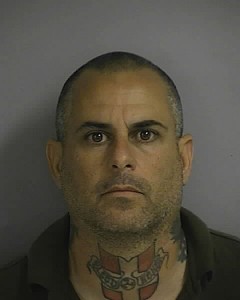Congratulations to the NYT, which offers the superlative version of a story everyone seems to be writing today. It describes a whole host of reasons why we should not trust the Saudis.
That collaboration appears to have intensified over the past two years, despite a long history of mistrust rooted in the role of Saudi hijackers in the attacks of Sept. 11, 2001. The relationship was tested again last year when Saudi leaders responded furiously to American endorsement of the revolt that ousted a Saudi ally, President Hosni Mubarak of Egypt. American diplomats were surprised and angered in turn soon afterward when Saudi Arabia sent troops to help put down unrest in neighboring Bahrain.
[snip]
The counterterrorism cooperation has not been without bumps, officials from both countries acknowledge.
In 2007, the Federal Bureau of Investigation quietly sent a handful of agents to Saudi Arabia to work with officials there on a classified counterterrorism strategy, according to a senior American official who was briefed on the program. After several months, however, the two sides disagreed on a common strategy, and the F.B.I. agents went home.
Internal State Department cables obtained by WikiLeaks and made available to several news organizations revealed American frustration with Saudi Arabia in curtailing financial supporters of many extremist activities.
“It has been an ongoing challenge to persuade Saudi officials to treat terrorist financing emanating from Saudi Arabia as a strategic priority,” said a classified cable sent by Secretary of State Hillary Rodham Clinton in December 2009, concluding that “donors in Saudi Arabia constitute the most significant source of funding to Sunni terrorist groups worldwide.”
But ultimately concludes that in spite of all this evidence, our partnership with the Saudis is working just great.
But when it comes to counterterrorism, the Saudis have been crucial partners, not only for the United States but also for an array of other Western powers.
[snip]
Under pressure from the United States, American officials now say, Saudi Arabia is taking the threat more seriously, holding financiers accountable through prosecutions and making terrorist financing a higher priority.
Like many of these stories, the NYT quotes Mustafa Alani, a counterterrorism analyst at the Gulf Research Center with close ties to the Saudi intelligence establishment, describing the division of labor on counterterrorism: the US conducts electronic surveillance, the Saudis provide HUMINT. And while the NYT gets the prize for the most self-contradictory celebration of US-Saudi counterrorism “cooperation,” my favorite quote from Alani is this one, in the WaPo’s version of the story.
“Even with the drone strikes, the air raids, the Americans need someone on the ground,” Alani said. “The Saudis are the ones who can pinpoint targets for the Americans.”
The Saudis, Alani brags, are responsible for our pinpointed targeting in Yemen. You know? The kind that manages to kill an American teenager but fails to hit its intended target. Or the kind that will become even less pinpointed now that the Saudis have delivered up a bomb plot to convince the President that AQAP is still targeting the US (this CNN story confirms that the bomb plot was delivered up before Obama’s signature strike okay was reported) and therefore needs to be targeted with signature strikes.
But since we’re discussing Saudi pinpointed targeting, let’s look more closely at two other Saudi pinpoints. First, there’s the Saudi strike on a Houthi medical clinic in 2009-2010, which they used to ask for Predator drones. Almost the whole cable is worth reading to see the multiple ways in which Saudi Prince Khaled bin Sultan manipulated us.
USG CONCERNS ABOUT POSSIBLE STRIKES ON CIVILIAN TARGETS
——————————————————-
¶2. (S/NF) Ambassador Smith delivered points in reftel to Prince Khaled on February 6, 2010. The Ambassador highlighted USG concerns about providing Saudi Arabia with satellite imagery of the Yemen border area absent greater certainty that Saudi Arabia was and would remain fully in compliance with the laws of armed conflict during the conduct of military operations, particularly regarding attacks on civilian targets. The Ambassador noted the USG’s specific concern about an apparent Saudi air strike on a building that the U.S. believed to be a Yemeni medical clinic. The Ambassador showed Prince Khaled a satellite image of the bomb-damaged building in question.
IF WE HAD THE PREDATOR, THIS MIGHT NOT HAVE HAPPENED
—————————————————-
¶3. (S/NF) Upon seeing the photograph, Prince Khalid remarked, “This looks familiar,” and added, “if we had the Predator, maybe we would not have this problem.” Read more →



